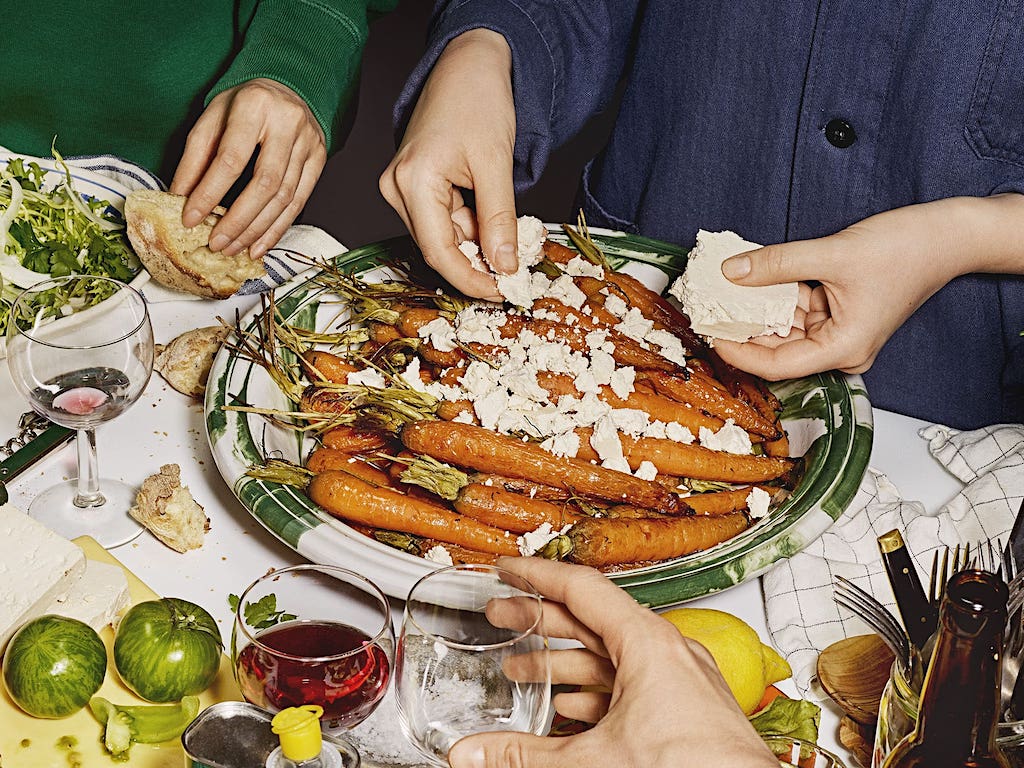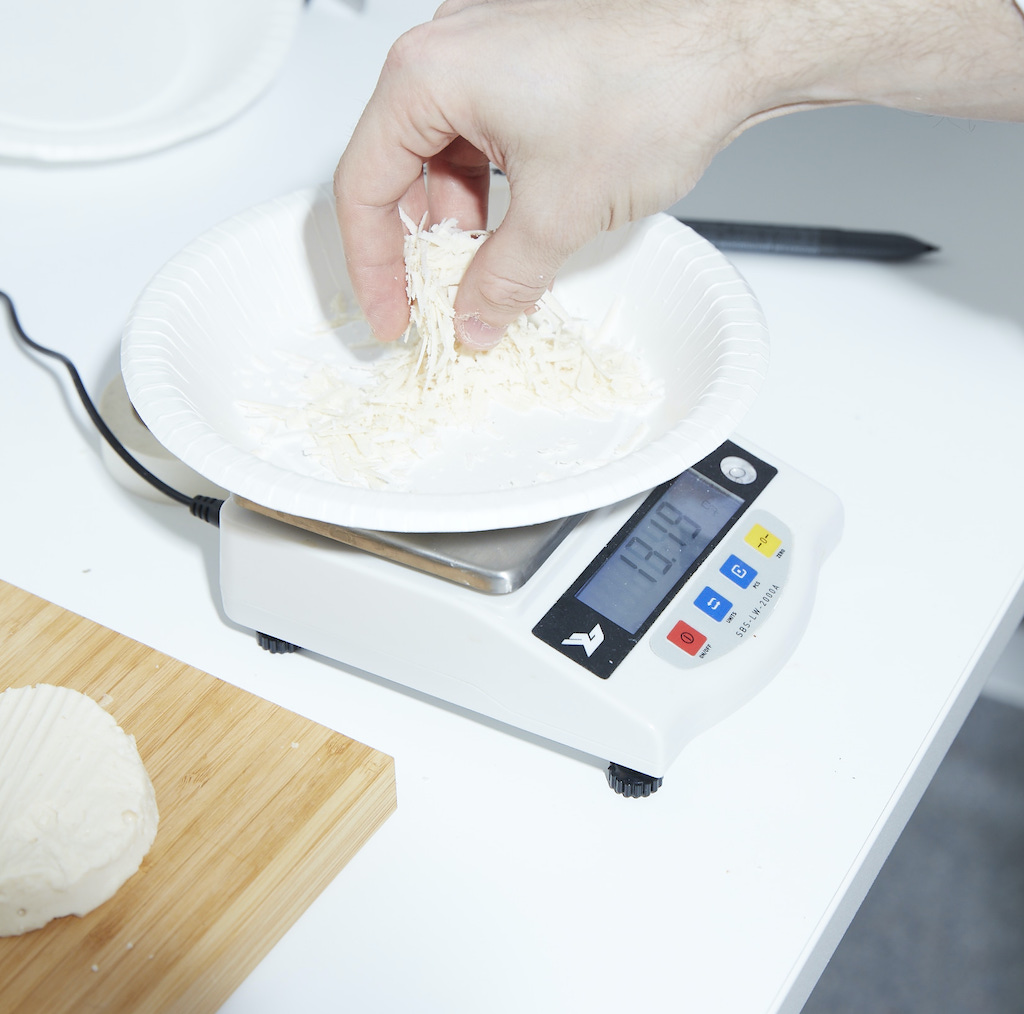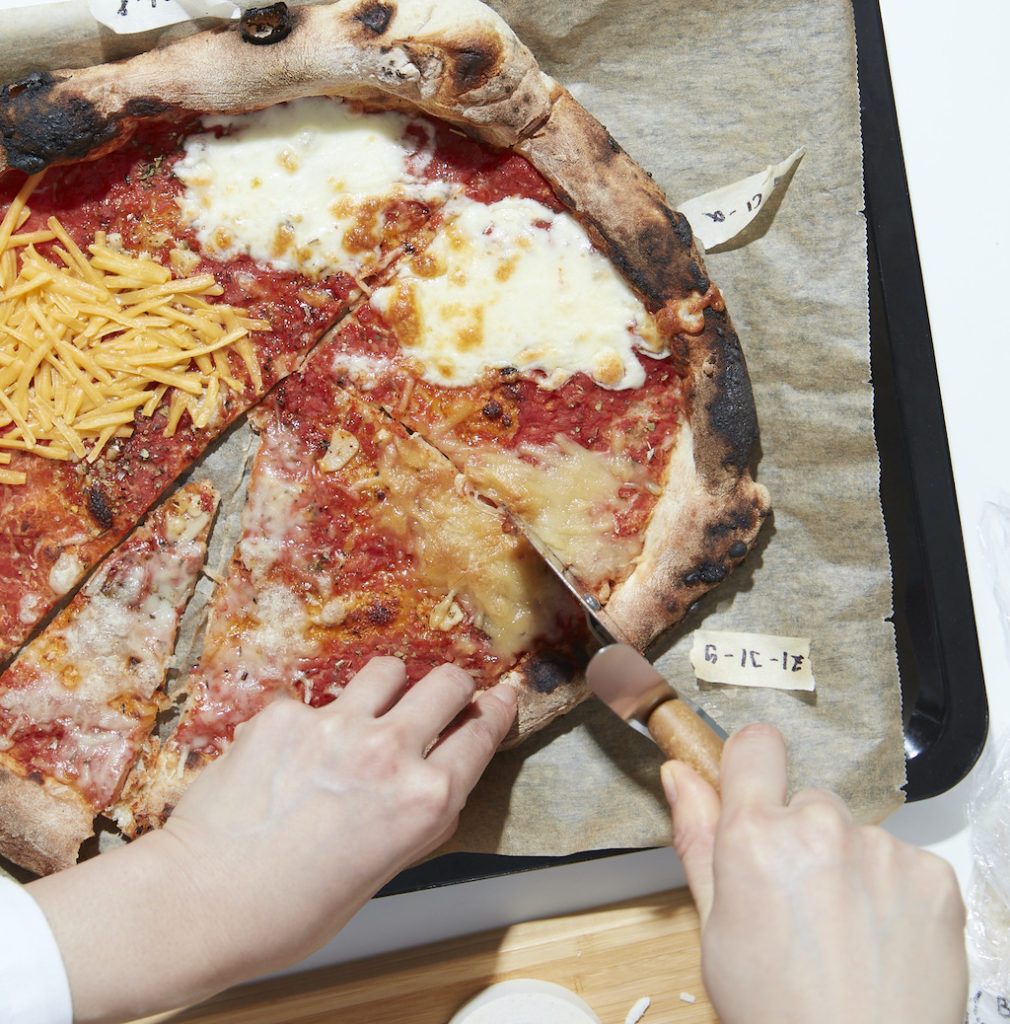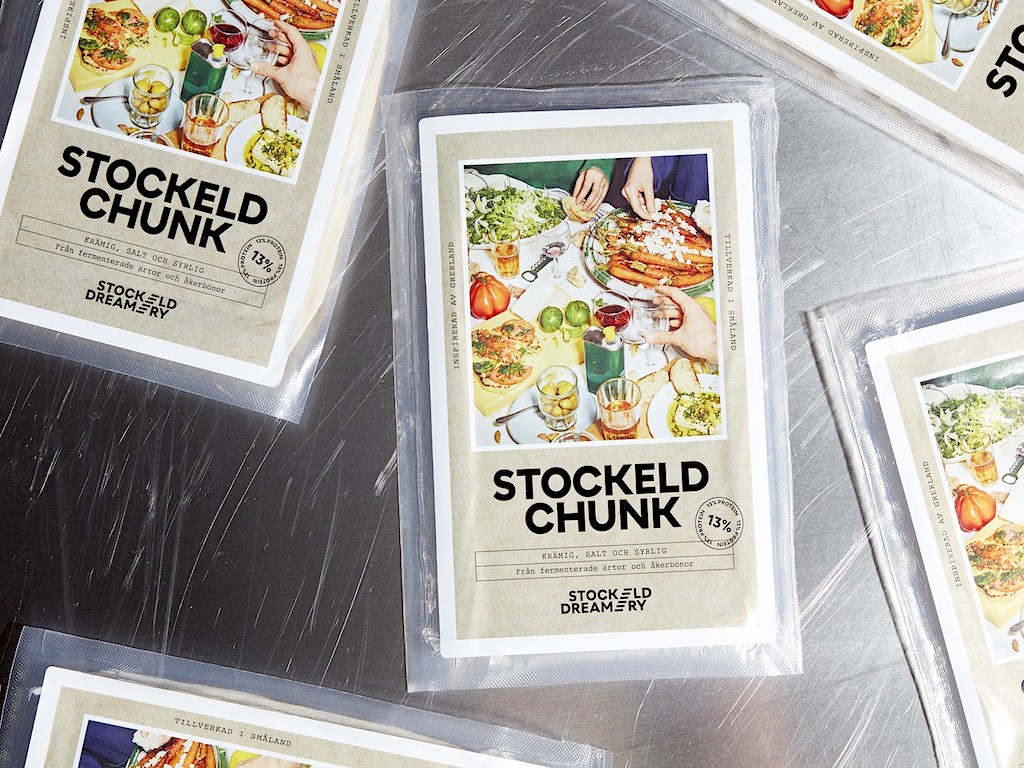Stockeld Dreamery Launches Plant-Based Feta ‘Chunk’ Across Sweden
4 Mins Read
Swedish food tech Stockeld Dreamery is launching its first product, a plant-based feta cheese alternative. Landing in stores within Stockholm this week, the fermented pea and fava bean-based Stockeld Chunk will then be rolled out in more restaurants and retailers across Sweden, ahead of the startup’s international launch.
Stockeld Dreamery has announced the launch of its first vegan cheese product, Stockeld Chunk, in stores on Thursday (May 6) in Stockholm. After thousands of iterations, chef tastings and consumer testing, the startup has “nailed it” and has decided that its fermented pea and fava bean-based feta alternative is ready for the market.
It will be initially available in dishes and as a 150-gram retail package at Pom & Flora and BAK Bakery, as well as the cheesemonger Wijnjas Grosshandel, where only the retail pack will be sold. Stockeld Dreamery says they will then widen their net to cover more locations across Sweden, including both foodservice and retail channels, ahead of an international launch.
Read: Why this Swedish pea and bean cheesemaker decided to rebrand

Stockeld Chunk is designed to be an alternative for feta cheese, and can be incorporated into dishes such as salads, crumbled pieces in hot dishes or toppings in a soup. The startup says that the product brings “its own unique experience” and is a “new category of cheese” that is high in protein and other nutrients.
It is made from seven ingredients in total – pea protein, fava bean protein, coconut oil, rapeseed oil, potato starch, natural aromas and starting culture, which is fed a little bit of sugar to kickstart the fermentation process. The final product rivals the nutritional value of real feta cheese with 13-grams of protein per serving and contains gut-healthy live microorganisms too, while being ethically and sustainably made.
Stockeld Dreamery, which recently rebranded from Noquo Foods, says their story of creating a plant-based cheese product all started with the co-founders Sorosh Tavakoli and Anja Leissner’s mission to take aim at unsustainable dairy production.
If you’ve ever had the misfortune of eating a plant-based cheese, you already know the answer. Most products in this category taste bad, are poor in nutrition, and are expensive.
Daniel Skaven Ruben, Head of Strategy & Special Projects, Stockeld Dreamery

“Sorosh had always loved cheese. But he didn’t love the negative impacts of cheese production,” explained the company’s head of strategy and special projects Daniel Skaven Ruben, who was an early advisor and investor in the firm.
“He realised that the dairy industry alone accounts for 4% of total global greenhouse gas emissions, and that there weren’t any great alternatives to dairy-based cheese. Eventually, Sorosh refused to accept [the] status quo — he decided to develop cheese without dairy.”
At the moment, the dairy-free cheese alternative market is growing fast, with researchers expecting the global plant-based cheese segment to double from its current US$2.7 billion to over US$4.5 billion by 2025.
Read: These next-gen food techs are innovating animal-free cheese without nuts
Even big food corporations like Bel Brands to Danone have been jumping in with their own animal-free cheese analogues, and the trend isn’t going anywhere with the latest statistics suggesting that as many as 4 in 10 consumers worldwide are now flexitarian.

This is a solid first step towards our first vision: To create a cheese that is superior in taste and nutrition, constantly striving to use our planet’s resources wisely, accessible to all yet one of the top preferred cheeses by chefs and restaurants.
Daniel Skaven Ruben, Head of Strategy & Special Projects, Stockeld Dreamery
But what makes Stockeld Dreamery’s plant-based cheese stand out in the increasingly crowded space is their unique nut-free blend of ingredients – they are among one of the few plant-based cheese makers who are innovating substitutes without nuts like cashews and almonds, which are often expensive and doesn’t match up in terms of taste.
“If you’ve ever had the misfortune of eating a plant-based cheese, you already know the answer. Most products in this category taste bad, are poor in nutrition, and are expensive,” wrote Ruben.
While the team has “nailed it” after two and a half years of R&D, Ruben revealed that ongoing improvements will always be made to continually upgrade their product. “We know that the product is great, and we’ll continue to make it even better.”
“This is a solid first step towards our first vision: To create a cheese that is superior in taste and nutrition, constantly striving to use our planet’s resources wisely, accessible to all yet one of the top preferred cheeses by chefs and restaurants. Simply put, the world’s most ambitious cheese.”
All images courtesy of Stockeld Dreamery.




